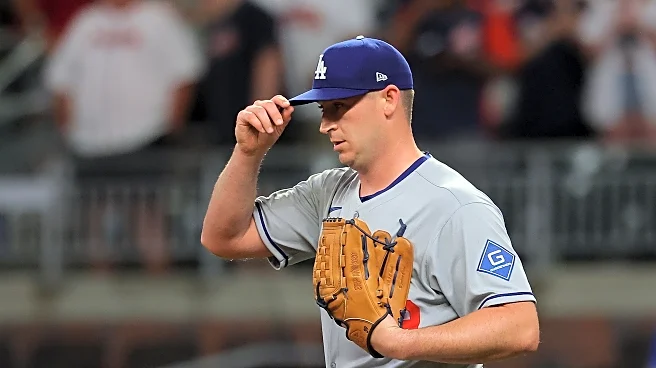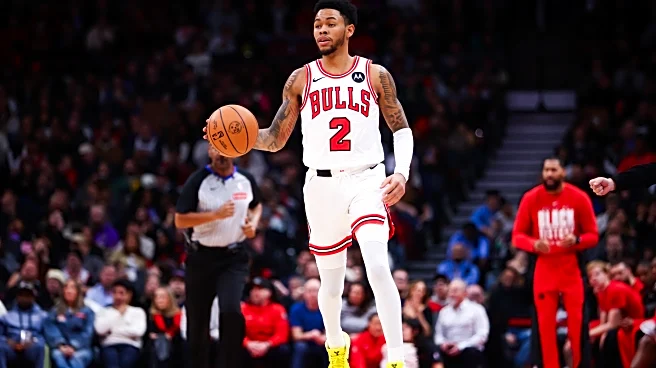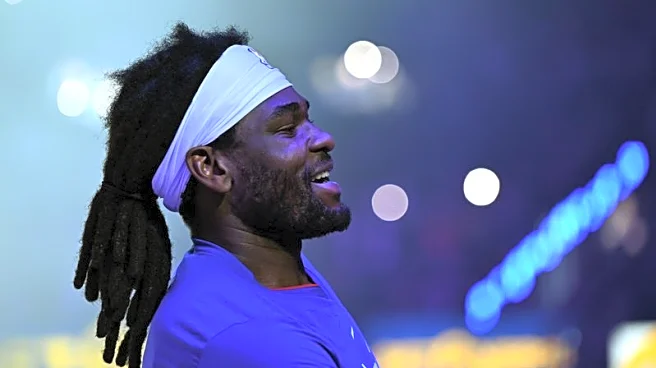What's Happening?
The Halo TV series, a live-action adaptation of the popular video game franchise, premiered on Paramount Plus on March 24, 2022. Despite initial plans for a third season, the series was cancelled by Paramount Plus on July
18, 2024. The show, produced by Showtime and 343 Industries, was initially announced in 2013 and faced several delays before its eventual release. The series depicted the Human-Covenant War, with John-117 as one of the lead characters. The cancellation has led producers to seek a new streaming platform to continue the series.
Why It's Important?
The cancellation of the Halo TV series marks a significant moment for fans of the franchise, as it was one of the few live-action adaptations of a video game to reach production. The series had the potential to expand the Halo universe beyond gaming, offering a new narrative medium for storytelling. Its cancellation may impact the perception of video game adaptations in the entertainment industry, highlighting the challenges of translating interactive experiences into television formats. The search for a new platform indicates ongoing interest in the franchise's potential for storytelling.
What's Next?
Producers are actively seeking a new streaming platform to continue the Halo TV series. This search suggests that there is still interest in the series and its potential to attract viewers. The outcome will depend on negotiations with potential distributors and the willingness of platforms to invest in the continuation of the series. Fans of the franchise may express their support for the series, influencing its future prospects. The decision will also impact the broader landscape of video game adaptations in television.
Beyond the Headlines
The Halo TV series cancellation raises questions about the viability of video game adaptations in television. It highlights the complexities of maintaining narrative integrity while appealing to both fans and new audiences. The series' development history, including its delays and changes in production teams, underscores the challenges faced by such projects. The search for a new platform may lead to discussions about the future of video game storytelling in media, potentially influencing how other franchises approach adaptations.











